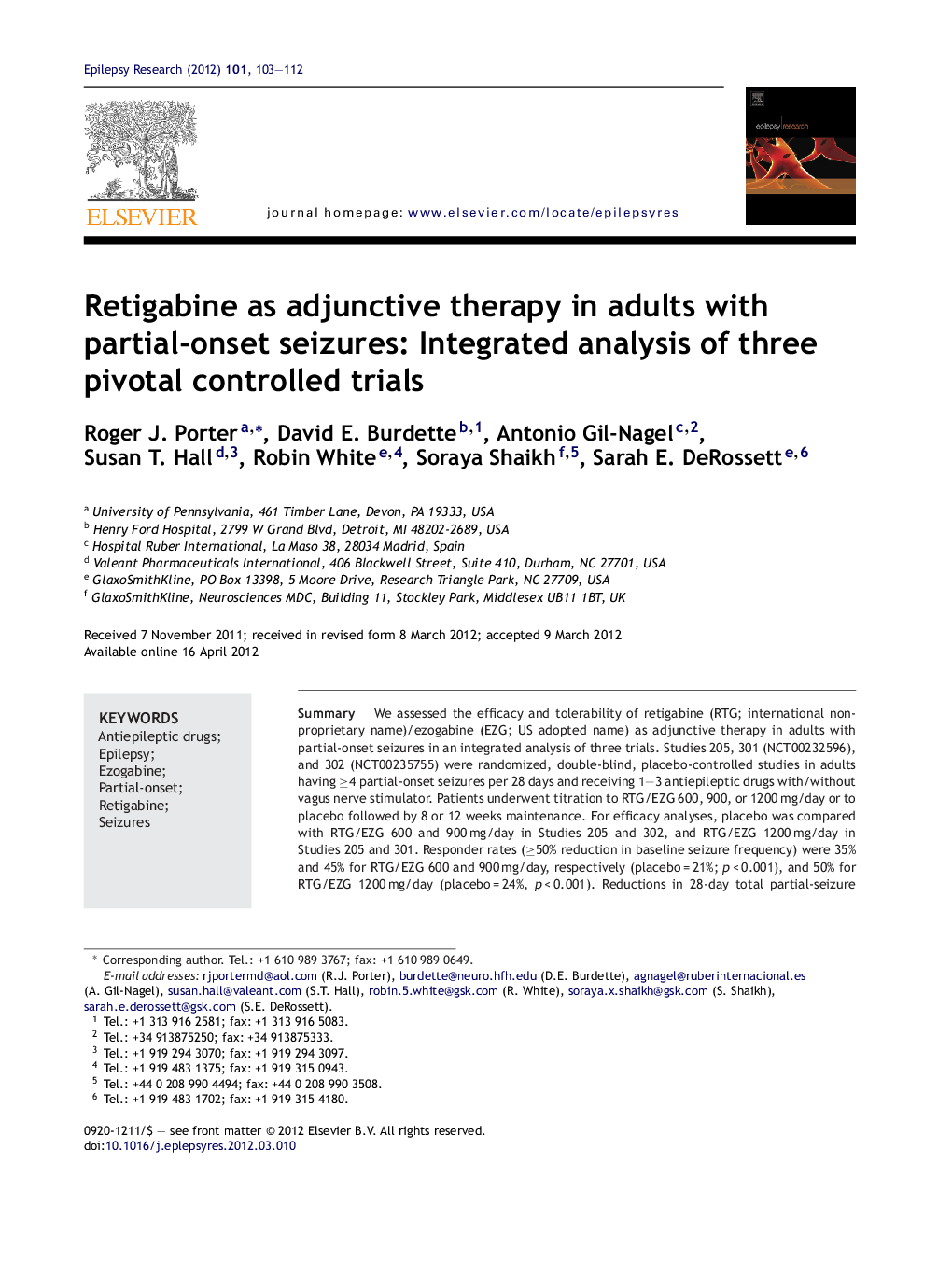| Article ID | Journal | Published Year | Pages | File Type |
|---|---|---|---|---|
| 3052198 | Epilepsy Research | 2012 | 10 Pages |
Abstract
We assessed the efficacy and tolerability of retigabine (RTG; international non-proprietary name)/ezogabine (EZG; US adopted name) as adjunctive therapy in adults with partial-onset seizures in an integrated analysis of three trials. Studies 205, 301 (NCT00232596), and 302 (NCT00235755) were randomized, double-blind, placebo-controlled studies in adults having â¥4 partial-onset seizures per 28 days and receiving 1-3 antiepileptic drugs with/without vagus nerve stimulator. Patients underwent titration to RTG/EZG 600, 900, or 1200 mg/day or to placebo followed by 8 or 12 weeks maintenance. For efficacy analyses, placebo was compared with RTG/EZG 600 and 900 mg/day in Studies 205 and 302, and RTG/EZG 1200 mg/day in Studies 205 and 301. Responder rates (â¥50% reduction in baseline seizure frequency) were 35% and 45% for RTG/EZG 600 and 900 mg/day, respectively (placebo = 21%; p < 0.001), and 50% for RTG/EZG 1200 mg/day (placebo = 24%, p < 0.001). Reductions in 28-day total partial-seizure frequency (medians: placebo = 14%; 600 mg/day = 26%, p = 0.003; 900 mg/day = 37%, p < 0.001; placebo = 15%; 1200 mg/day = 39%, p < 0.001) were significantly greater with all RTG/EZG doses vs. placebo from baseline to the double-blind phase, and similarly during the maintenance phase. The most commonly reported (>10%) treatment-emergent adverse events were dizziness, somnolence, headache, and fatigue. RTG/EZG demonstrated efficacy and was generally tolerated as adjunctive therapy in adults with partial-onset seizures in this integrated analysis.
Related Topics
Life Sciences
Neuroscience
Neurology
Authors
Roger J. Porter, David E. Burdette, Antonio Gil-Nagel, Susan T. Hall, Robin White, Soraya Shaikh, Sarah E. DeRossett,
